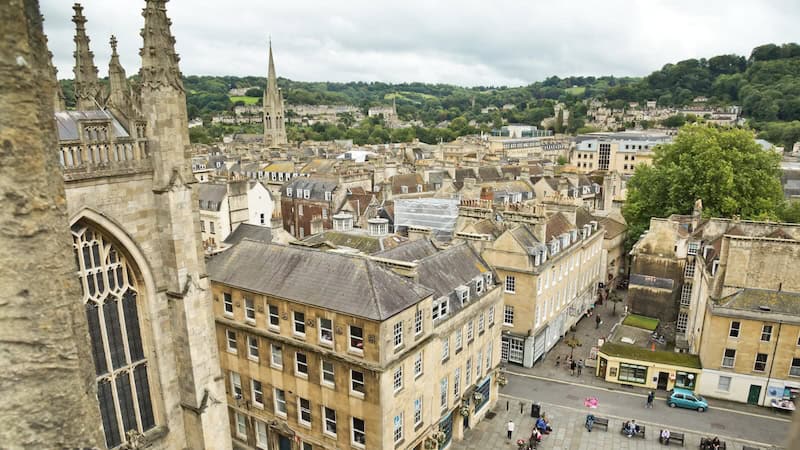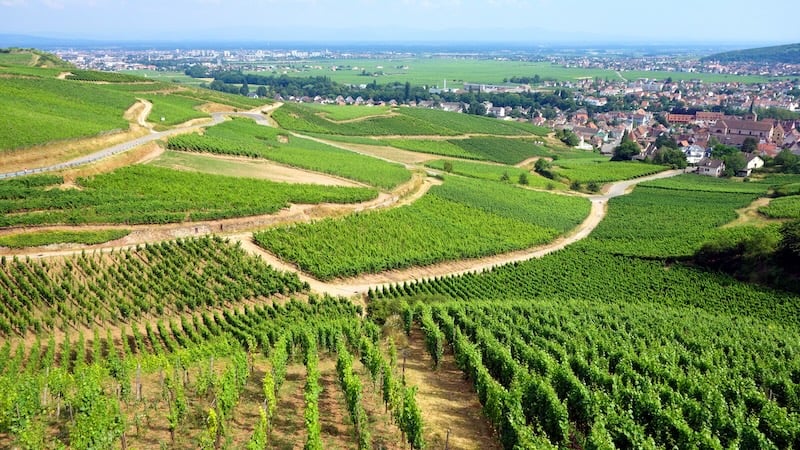The Raw Material of Life
Novelist and BOOMER columnist David L. Robbins shares experiences from his recent trip to South Africa, where he conducted research for an upcoming novel
I write this at 5:30 in the morning. I’m never awake at 5:30 a.m. I’m very accustomed to seeing that 5 out front on the digital clock only once a day.
It’s dark outside. Cold. Empty. I imagine wolves. And joggers.
Just days ago I returned from a monthlong journey to South Africa. Thirty-nine hours and four flights were required to bring me home. My body arrived with my luggage. My head is in a later shipment.
I spent all of January traveling at the bottom of Africa, researching my next novel. Cape Town, Port Elizabeth, Plettenberg Bay, Johannesburg, Pretoria, the Kruger National Park: On a map, these places seem exotic and faraway.
THE VICIOUS SMELL OF MURDER FOR PROFIT
I’ve taken many of these long, remote trips to dig up raw material for my books. The Russian steppe, Poland, Cuba, Manila, a banana plantation in Australia, a white forest in Siberia, the Crimea, Berlin, Brittany, Djibouti, the Red Sea, more. I go alone, because these are not tourism but business. I interview people, fill legal pads with scribbles, tear through batteries on my cameras. I start casual conversations with taxi drivers, librarians, old soldiers and new in bars, the suit on the train, the shantytown ladies balancing baskets on their heads, then record my thoughts before I forget. With comic gestures and odd inflections I flounder through Russian, Somali, Maltese, German, Ukrainian. (I used to believe the highland Scots had the best way with English – they sing when they speak – but I’ve never heard the human tongue more beautiful than in Nairobi where “hello” is “jambo” and “sir” is “sah.”)
My next book will take place in the terrible world of rhino poaching (a horn is worth over half a million dollars, by weight eight times more valuable than gold or cocaine). These majestic, primitive animals are being butchered in numbers that have qualified them for extinction; the birth rate is not keeping up with the kills.
During my South African month, I met, lived with and interviewed the widest range of people of my entire life: a two-star general, a prosecutor of organized crime, informants inside poaching gangs, Zulu rangers who are some of the best trackers on earth, a former Rhodesian Special Forces major who teaches survival in the bush, a conservationist who took me on a three-hour bush walk where we startled a family of giraffes and something large that shook the thorn trees, big-boned Afrikaans who’d rather grill outdoors (braai) than inside on a stove, old English families of wealth or tradition. I chugged a beer out of a boot as a Zimbabwean sign of acceptance, chased warthogs in a golf cart with a math genius, flew in a chopper with Shangaan policemen over the vast Kruger Park to investigate the carcasses of poached rhinos … .
Let me pause here for a sight, because it will dwell with me forever and it feels like something to share. Setting down, that chopper spooked a clot of giant buzzards, a hundred or more. These condor-sized birds took flight as one, a dark pillar beating upward. There they spread into a circle pattern. The image was an explosion, not of smoke but black feathers. What they left in the dirt was the most awful thing, the gnawed and bone-raw body of a magnificent animal murdered for profit. The smell was vicious, and beyond that, largely indescribable. In that moment, everything I’d learned about poaching stopped being academic and became emotional. Standing there, in that remarkable stench and sadness, I received my story and every character in it.
BACK HOME A ‘CHANGED MAN’
I’ve returned home a changed man, to a home that did not change. I’ve already called my faraway friends many times to let them know I’m back safe and to ask they stay in touch. I intend to start a U.S. nonprofit to help bring some modern technology to the rhino war. I will start my new novel soon. I feel ready.
Best of all, I spent the last month a quieter man, patient and cooperative, appreciative of every kindness and generosity, thanking each stranger who led me onward to the next stranger. I waited without complaint, stayed alert to my surroundings and was openly in awe. I was, on the rim of Africa, a better person than I am here at home.
I want to live the rest of my life as if I’m traveling.


